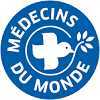The International Rescue Committee (IRC) responds to the world’s worst humanitarian crises, helping to restore health, safety, education, economic wellbeing, and power to people devastated by conflict and disaster. Founded in 1933 at the call of Albert Einstein, the IRC is one of the world’s largest international humanitarian non-governmental organizations (INGO), at work in more than 40 countries and 29 U.S. cities helping people to survive, reclaim control of their future and strengthen their communities. A force for humanity, IRC employees deliver lasting impact by restoring safety, dignity and hope to millions. If you’re a solutions-driven, passionate change-maker, come join us in positively impacting the lives of millions of people world-wide for a better future.
IRC operates in the Central African Republic (CAR) since late 2006 and has been implementing emergency response programs since early 2013. IRC has three offices in Bocaranga, Dékoa and Kaga-Bandoro, with the main office in Bangui and its extension in Paoua. Since 2007, IRC has built ties with local communities, community leaders, authorities, and other local and international actors. Today, IRC is one of the main humanitarian actors working in Ouham-Pendé, Kémo and Nana-Gribizi regions, implementing health and protection programs for women and children, economic recovery, and development. IRC has demonstrated its ability to successfully implement health and protection programs, improve beneficiaries’ access to health care, and provide victims of violence with secure and confidential services to help them recover and reintegrate into their community. The technical expertise acquired, the logistic capacities as well as the local knowledge and understanding on the context laid foundations for the expansion and deepening of these services to reach more people and respond to urgent needs on a larger scale, as additional funding increases. In 2017-2018, IRC CAR set up a special trained Emergency Team (CET) to respond quickly to acute humanitarian crises.
IRC – CAR vision
RC’s vision for CAR is that individuals, households, and communities are resilient, empowered, and able to thrive in a changing environment. With its headquarters in Bangui and its field offices in the regions of Ouham-Pendé, Kémo and Nana-Gribizi, IRC is one of the most important humanitarian actors in the CAR. IRC aims to save lives and improve the lives of the country’s most vulnerable people and households
Scope of work
The IRC is seeking a Humanitarian Access & Security Coordinator (HASC) for its CAR Country Program, based in Bangui with very frequent travel to program locations. The position will be part of the country Senior Management Team (SMT) to ensure that organizational security policies and procedures are responsive to the context, adequate and known to staff, and advise on humanitarian access in close coordination with program teams. Under the supervision of the Country Director (CD), the HASC will analyze security trends, advise, update, implement the IRC’s Security Management Plan and manage a team of safety and security professionals in the country. The HASC will streamline humanitarian access approaches in line with humanitarian principles, humanitarian needs, and IRC’s strategic action plan for the CAR. The HASC will conduct onsite training for staff, facilitate the development and implementation of appropriate plans, standard operating procedures and contingency plans. S/he will provide expert humanitarian security and access advice to all levels of IRC staff in the country office including access negotiations and mediation, context and conflict analysis, advisories, and incident management.
Responsibilities
Facilitation of Humanitarian Access (25%)
• Facilitate the development of an access strategy and framework for the country program;
• Support the Security Foal Points (SFP) as well as program teams in the design of operational strategies for the opening of new project, including with actor mapping and engagement strategies.
• Develop ongoing relationships with local authorities, non-State armed actors and other power brokers within the DRC;
• Work to ensure that IRC, its mission and work in the areas of operations is known and accepted;
• Provide technical input and advice in assessments to consider new IRC programs in new geographic areas.
Team Management and Internal/External Coordination (20%)
• Provide technical support and coordination to the Security Focal Points (SFPs) within the Country Program;
• Ensure that each dedicated safety and security staff member has a clear work plan with measurable objectives;
• Participate in Senior Management Team (SMT) meetings at country level and advise the group on security and access issues;
• Participate in internal project meetings, including Grant Opening Meetings(GOM), Grant Review Meetings (GRM) and Grant Closing Meetings (GCM).
Context Monitoring and Analysis (15%)
• Contribute to the strategic discussions with the country leadership team by providing continuous analysis of the security, economic and political context in the country;
• Identify the contextual trends that could potentially affect IRC operations in the country;
• Produce analysis of the likely scenarios in IRC areas of presence and advise the country team on how to adapt programs and operations accordingly;
• Compile and submit daily and monthly security reports as per IRC standard processes;
Operational Security Management (15%)
• Support IRC teams in the identification and management of the various safety and security risks inherent to their work;
• Ensure that IRC security protocols, procedures and plans are followed by all IRC staff members;
• Ensure that each safety or security incident is managed and reported in line with IRC procedures, and ensure that the persons affected are supported in a sensible and respectful manner, including when confidentiality is required;
• Provide an analysis of the most significant incidents and provide recommendations to limit the likelihood and impact of future similar incidents;
• Advise operations teams on the best possible solutions for use of equipment to facilitate communication between staff, including here proposing safe alternative means of communication and equipment;
Training, Briefings and Orientations (15%)
• Develop a training plan that addresses the capacity building needs for IRC DRC teams;
• Organize and facilitate regular trainings for IRC staff on security awareness (level 1) for all staff members
• Organize and facilitate regular trainings for IRC staff on security management (level 2) and humanitarian access for Security Focal points;
• In coordination with HR, coordinate the online training initiative for all staff members and for Security Focal Points
• Ensure that each visitor and new staff member receives appropriate briefing and/or orientation on arrival;
Planning and Documentation (15%)
• In coordination with the Senior Management Team (SMT), pilot the design, the update and the dissemination of all security and access policies, procedures, plans and assessments within the Country program, including:
o The implementation and regular update of the Security Risk Assessments (SRA);
o The design and regular update of the Security Management Plans (SMPs), which include Standard Operating Procedures (SOPs) and Contingency Plans;
o The evaluation, review and update of hibernation and evacuation plans for all IRC offices and residences within the country program;
o The design and regular update of briefing materials for visitors and new staff members.
Culture & ethics
• Maintain open and professional relations with team members, promoting a strong team spirit and providing oversight and guidance to enable staff to successfully perform in their positions including staff development plans.
• Lead with commitment, integrity and accountability the “IRC Way” – Global Standards for Professional Conduct – and ensure adherence.
Requirements
• A minimum of 5 years of non-profit or NGO work experience within international humanitarian assistance programs with demonstrated capabilities in planning and implementing complex tasks and projects.
• Understanding the humanitarian principles, code of conduct and specific work linked to NGO field and operations contexts.
• Ability to carry out complex contextual analysis and identify developing trends.
• Strong experience as a trainer; ability to develop, implement and facilitate learning to a wide range of audiences.
• Regional experience preferred.
• Previous NGO security management an asset.
• Ability to work in both French and English is mandatory. Knowledge of local languages is an asset.
Standard of Professional Conduct: The IRC and the IRC workers must adhere to the values and principles outlined in the IRC Way – our Code of Conduct. These are Integrity, Service, Accountability, and Equality.
Commitment to Gender, Equality, Diversity, and Inclusion: The IRC is committed to creating a diverse, inclusive, respectful, and safe work environment where all persons are treated fairly, with dignity and respect. The IRC expressly prohibits and will not tolerate discrimination, harassment, retaliation, or bullying of the IRC persons in any work setting. We aim to increase the representation of women, people that are from country and communities we serve, and people who identify as races and ethnicities that are under-represented in global power structures.
More Information
- Job City Bangui





